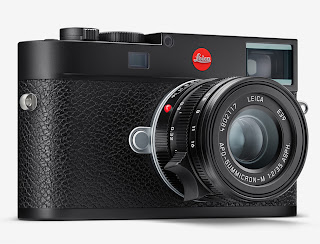By Heinz Richter
April 1, 2022 Today new and exciting information about a prototype of a Leica M12 reached me. I almost missed it because at first glance, the camera appears to be very much like the Leica M11. But closer inspection of the back does reveal some interesting differences.
Reading further about the camera, it is definitely substantially different from the M11.
For years now Leica has been criticized that they are using sensors that can also be found in other cameras, that they need a sensor all their own. Apparently, those wishes will be answered. Part of the big news is that Leica has joined forces with Sigma. Specifically, to incorporate a much improved design of their Foveon sensor into the new Leica cameras.
Virtually all digital cameras use CMOS sensors, the best of which are only made by very few companies. The only other type of digital sensor is the Foveon sensor, developed originally by Sigma.
The major difference is that unlike a CMOS sensor, the Foveon sensor does not rely on a Bayer grid to create a color image. Instead, Foveon sensors rely on three RGB layers, not unlike color films. The slightly deteriorating effects of the Bayer grid are totally eliminated. In addition, the full resolution of the sensor is available for all three colors which have a definite advantage, not only in terms of color accuracy but also overall resolution.
Apparently a black and white only version of the Foveon sensor is also being developed. Here the three layers of the sensor are ‘color blind’ and record the image only in black and white. This could be done with only a single layer, as is the case with the black and white sensors in the Leica Monochrom cameras. But the three sensor layers are maintained.
The first layer is a full resolution layer. The second one combines four individual pixels as one pixel element. This will greatly increase overall sensitivity and, combined with the first layer, it results in a noticeably greater dynamic range and much better high ISO performance.
Even more interesting is the fact that the third sensor layer is also maintained, even though it is unnecessary to record a full image. This layer is designed for full infrared sensitivity only and, by turning off the other two layers, the M12 is capable of recording full infrared images without any modifications or filters.
Another feature that many have been waiting for is a hybrid viewfinder - the standard rangefinder that has been serving us well ever since the introduction of the Leica M3 in 1954, combined with an electronic viewfinder.
Leica found an ingenious solution. In the rangefinder of the past, the frame lines were indicated by a black metal plate with the individual frame lines cut out and illuminated for better visibility during viewing and focusing.
The metal plate for the frame lines has been replaced with a small, high resolution video screen. This will display the frame lines as before or, by switching to the electronic viewfinder, it will display the full image as recorded by the sensor.
Finally, the eyepiece of the viewfinder has a full diopter control added to it.
Unfortunately, no information about the release of this camera is available as of now.
For other articles on this blog please click on Blog Archive in the column to the right
























April Fools!
ReplyDeleteI am super gullible at one time I thought of purchasing a sigma camera just to get a camera with that sensor. But it’s very low iso and it’s banding issues talked me out of it. Leica can do the impossible so if anyone can get that sensor to work correctly it has to be them.
ReplyDeleteBut the combination of the date so recently after the release date and it was April 1 suggested that you are pulling everyone leg
Again that sensor would be incredible but I have to think you pull an excellent and very logical April fools joke
I am waiting for the m11 monochrom to go on sale
Did you mention that you have a bridge for sale? If it is the desert I might be persuaded to buy it
Thank you for an equally tongue in cheek comment to my article. I basically agree with all you said except Leica's ability to do anything about getting that sensor to work competitively. Leica is not an electronics company and therefore has to rely on outside sources for the electronics in their cameras.
ReplyDelete